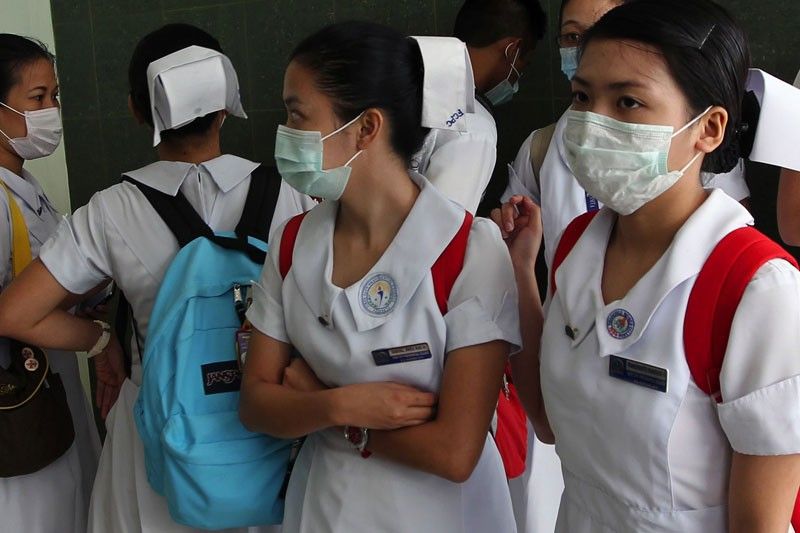
ACTS-OFW party-list said the number of Filipino nurses taking the test for the first time "is considered a good indicator as to how many of them are trying to enter the profession in America."
Edd Gumban
More than 10K Filipino nurses took test for US license in 2018, ACTS-OFW says
(philstar.com) - February 5, 2019 - 10:41am
MANILA, Philippines — More than 10,000 Filipino nurses took the US licensure examination for the first time in 2018, making up the bulk of test takers.
According to a release by ACTS-OFW party-list, 10,302 Filipinos took the National Council Licensure Examination (NCLEX), up from 7,791 first-time test takers in 2017.
In contrast, 1,232 Indians, 1,017 Puerto Ricans, 783 South Koreans and 601 Nigerians took the NCLEX for the first time in 2018, Rep. Aniceto Bertiz III said. Puerto Ricans are US citizens.
The US National Council of State Boards of Nursing Inc. administers the NCLEX to license registered nurses and practical nurses. Taking the test in the Philippines through the Perasin VUE center in Makati costs $200 (P10,500), ACTS-OFW said.
The party-list said the number of Filipino nurses taking the test for the first time "is considered a good indicator as to how many of them are trying to enter the profession in America."
Bertiz said: "There's no question many Filipino nurses looking for greener pasture overseas prefer to work and live in America, mainly due to the superior hourly pay, plus our attachment to the Western culture."
Bertiz, whose LinkedIn profile lists him as the president and CEO of recruitment agency Global Asia Alliance Consultant Inc. and the spokesperson of the OFW Advocates Coalition, said nurses are not covered by the US Department of Homeland Security's yearlong ban on temporary work visas for Filipinos.
"Filipino nurses entering America through the sponsorship of their prospective US employers apply for and are issued a separate entry permit – the H-1B visa," Bertiz said.
The party-list said it expects the demand for Filipino nurses in America to steadily increase in the years ahead.
"America's nursing workforce is growing old, and they are not producing new nurses fast enough, mainly because they lack teaching staff. In fact, US schools are turning away many would-be nursing students due to the shortage of qualified instructors," Bertiz said.
Comments